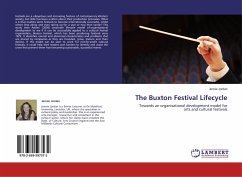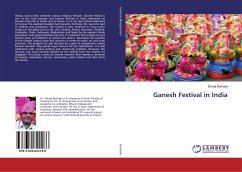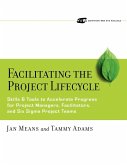Festivals are a ubiquitous and increasing feature of contemporary Western society, but little has been written about their production processes. What is it that enables some festivals to become internationally successful, whilst others limp along and even spring up for a year or two then vanish? This study tests Adizes (2004) corporate lifecycle model of organisational development to see if it can be successfully applied to a cultural festival organisation, Buxton Festival, which has been producing festivals since 1979. It identifies normal and abnormal characteristics and problems that are shared by companies as they are founded, grow, mature and then decline. If the model can be seen to work for not-for-profit cultural festivals, it could help their leaders and funders to identify and avoid the crises that prevent them from becoming sustainable, successful events.
Bitte wählen Sie Ihr Anliegen aus.
Rechnungen
Retourenschein anfordern
Bestellstatus
Storno








